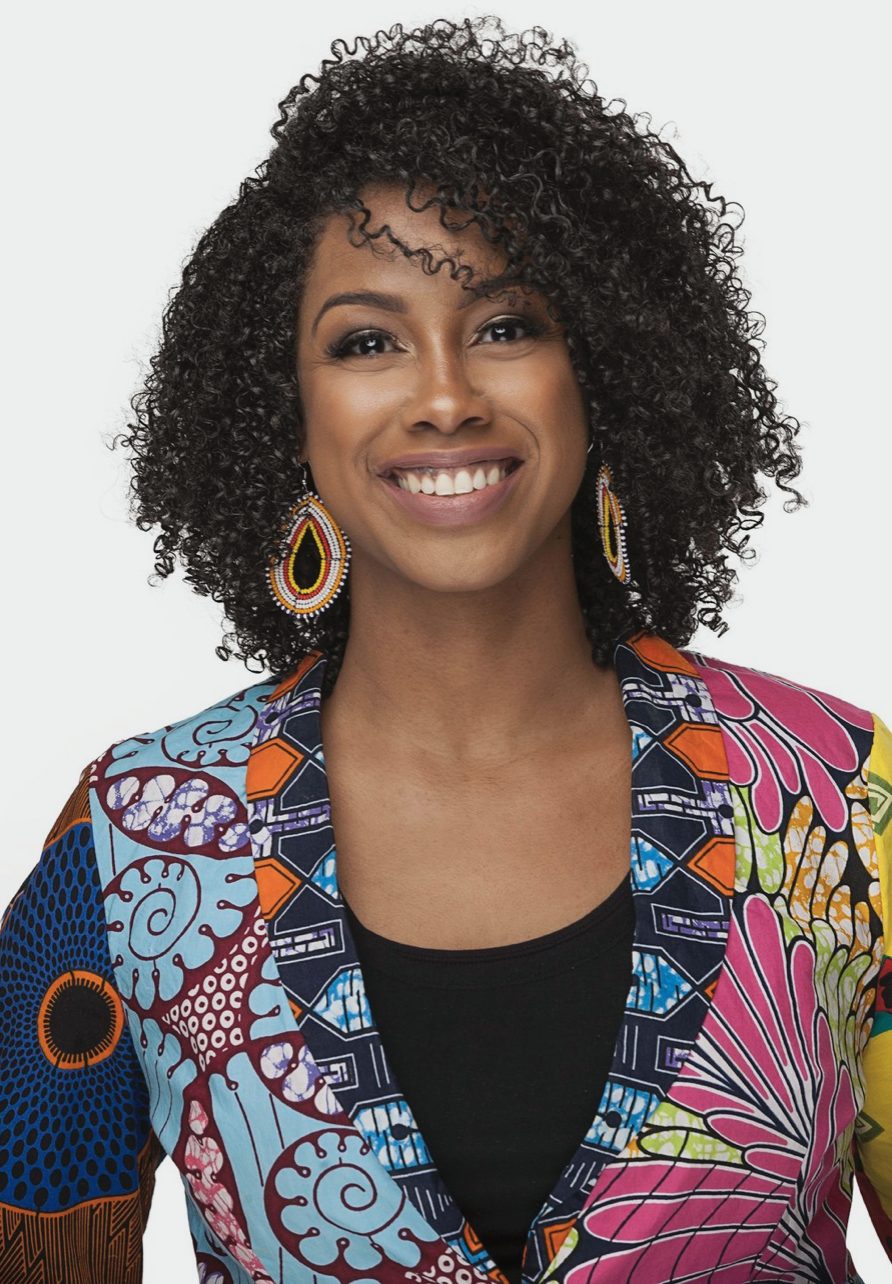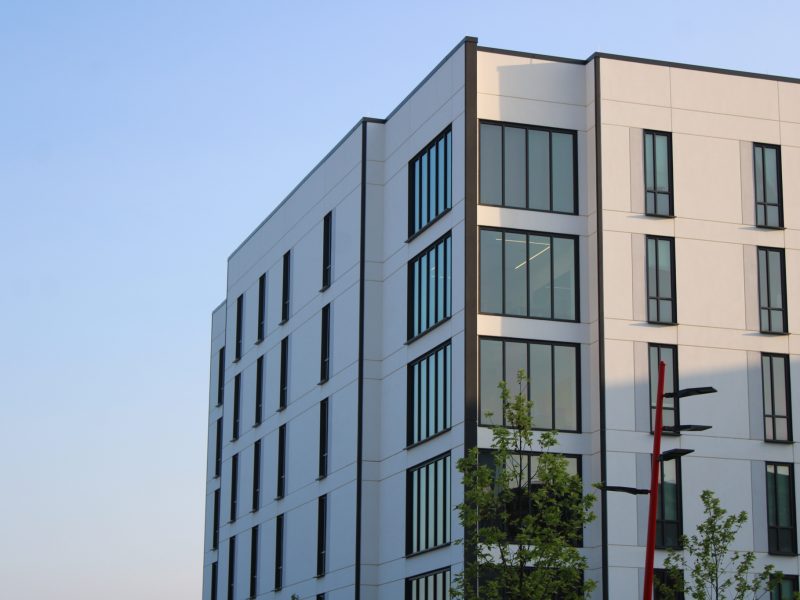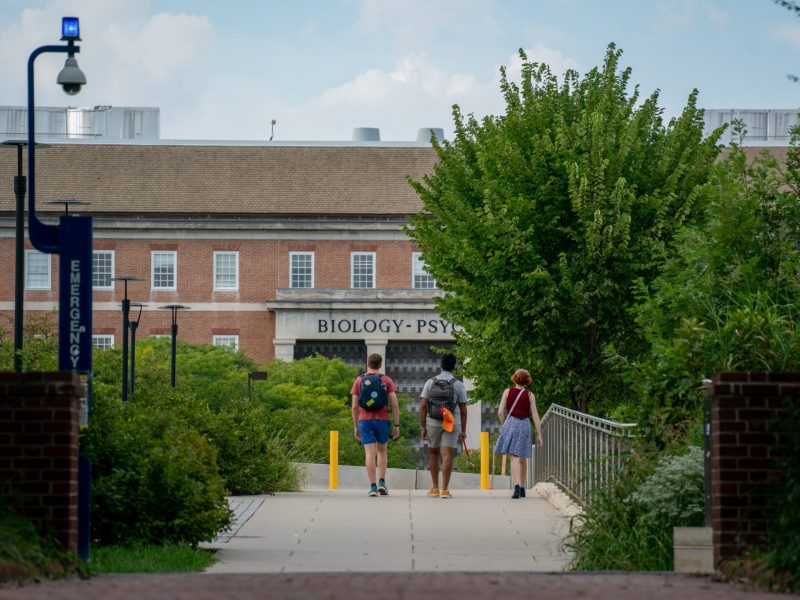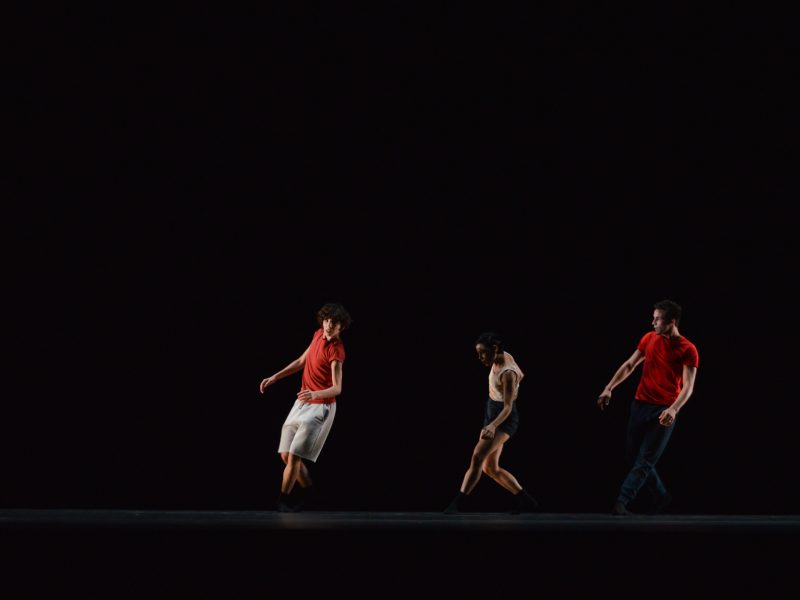Dr. Afiya Mbilishaka is a clinical psychologist and hairstylist. Throughout her career, she realized the importance of building a bridge between Black hair care and psychology. As a result, she founded PsychoHairapy. She sat with me on Zoom to explain what this hair and mental health movement is all about.
Note: The questions and answers were edited for clarity.

Monica Godnick: In a nutshell, what is PsychoHairapy?
Dr. Afiya Mbilishaka: PsychoHairapy is using hair as an entry point into mental health services. So this includes training hair care professionals to be lay health advisors, and practice mental health first aid. This also includes having therapists based in the hair salon and barbershop space, including workshops and even group therapy. And PsychoHairapy also includes using social media to spread messages around mental health through hair care pages.
Godnick: What’s an example of PsychoHairapy in action in hair salon and barbershop spaces?
Mbilishaka: A really good example of PsychoHairapy in action is when someone just experiences a death in the family. Oftentimes, when we’re preparing for a funeral, or even just the services, we get our hair done. But then it becomes part of the role of the hairstylist or barber to be able to have conversations — and helping someone cope with a major loss. And so oftentimes, I think stylists and barbers won’t immediately give advice. But a major piece of PsychoHairapy is learning how to be an active listener, to make sure you’re understanding. So for example, if someone experienced a loss, maybe they’re not feeling sad, maybe they’re feeling really angry, and to make a distinction between anger or sadness. Also to be able to find resources. If the concern seems really big, if the grief is really complicated, to find that person a psychologist or social worker or psychiatrists to further support them in their process.
Godnick: Customers have a very close relationship with their hairstylist, so I’m imagining that in your experience there too, you also experienced that kind of relationship where you needed that resource.
Mbilishaka: The relationships, according to research in African American communities, between hair care professional and clients are very tight. For example, there are research studies that say that Black women are more likely to get their hair done than to go to a doctor’s appointment. And just recognizing that the health care providers, oftentimes are hair care professionals in this community.
Godnick: What inspired you to start this? When when was the moment you thought and realized that this movement was something needed in the Black community?
Mbilishaka: I always loved doing hair. I was my family’s stylist growing up. When I went to college that continued. I went to the University of Pennsylvania for undergrad and there, I ended up doing a lot of my classmates’ hair in my dorm room for free. I didn’t charge. But I love psychology, and I found this as a great space to have really meaningful conversations. So I remember talking to my aunt on the phone one day and telling her I wasn’t sure if I would enter psychology or hair care when I graduated. She said, ‘Well, why can’t you do both?’ I don’t think she was telling me to do both at the same exact time. But that’s the way I interpreted it and thought how critical it is to talk things out — but also to feel like you look better or be taken care of. It doesn’t have to be one or the other, but it can actually be combined. Just observing the conversations that happen in barbershops and hair salons. They are extremely therapeutic, and so I recognize though that most barbers and hairstylists have never gotten a training around mental health. So I saw that as a clear point of connection to give sort of the informal therapists more training.
Godnick: Could we get more details about what your movement has found along the way about the connection between mental health and Black hair?
Mbilishaka: Well, I definitely have seen that hair can be a litmus test for someone’s mental health. I think that someone’s hair health is impacted by anxiety, depression and other mental health concerns. And so by addressing some of these mental health concerns, hair actually can look healthier, [to the point] that people want to come back for more appointments. [They] are more invested in their self care. I think that we’ve been seeing really good work around group conversation as well. There’s a salon in San Diego that has hired a [therapist] to join their team. So that in the evening, they can have these group conversations and process what’s been going on for the day. What’s interesting, particularly for this person — her name
is Misty [Jackson], who has the salon in San Diego, who’s certified in PsychoHairapy — she’s ended up having clients come for the talking part that weren’t even getting their hair done. And so just to even wanting to have community in that way. And I think that’s even part of the culture of African American hair salons, where sometimes people who aren’t getting their hair done can still participate and enjoy with them. That creates new customers and more opportunity to invest in self care.
Godnick: What kind of overall differences did you notice from your clients, or maybe you while you were also starting the movement, when they tried out your services or were more aware about this link between hair and mental health?
Mbilishaka: In terms of feedback from clients, I think a big part is about ritual. So a ritual is how you prepare your mind, body and spirit for something. They recognized how critical their hair care process was and their rituals for relationships, their rituals for family dynamics, their rituals for work. And [they] created more intention, in terms of what music should they be listening to, how much water do they need to be drinking, and just even setting hair goals and intentions and to kind of monitor their own progress along with a hair care professional. I think a lot of the clients that I’ve connected with feel more comfortable going for weekly therapy appointments, even outside of the salon because they’re getting used to talking more about their feelings and articulating what’s going on inside that sometimes can be ignored or neglected.
Godnick: How can students at the University of Maryland join the movement?
Mbilishaka: Students can join the PsychoHairapy movement by getting certified. I’ve had tons of undergraduate and graduate students get certified in PsychoHairapy to learn the history of hair, to learn about how mental illness shows up in communities and to learn some micro-counseling skills in terms of how to be an active listener, how to assess for harm and even how to refer to therapists respectfully. So these are skillsets that don’t require a bachelor’s degree or a master’s degree or a Ph.D., but it’s accessible for everyone to be able to create a community of care.
Godnick: What are some tips doe students at the University of Maryland to take care of their relationship with hair and mental health in their everyday routine?
Mbilishaka: A big way to take care of your mental health and hair is to take care of your physical body. So I recommend drinking at least 64 ounces of water a day. I recommend exercising at least 30 minutes, four to five days a week. I recommend sleeping between seven to nine hours a night. And I recommend eating at least four to five servings of fruits and vegetables a day. Those things will impact not only your mental health, your physical health but your hair health. So even starting with that.



